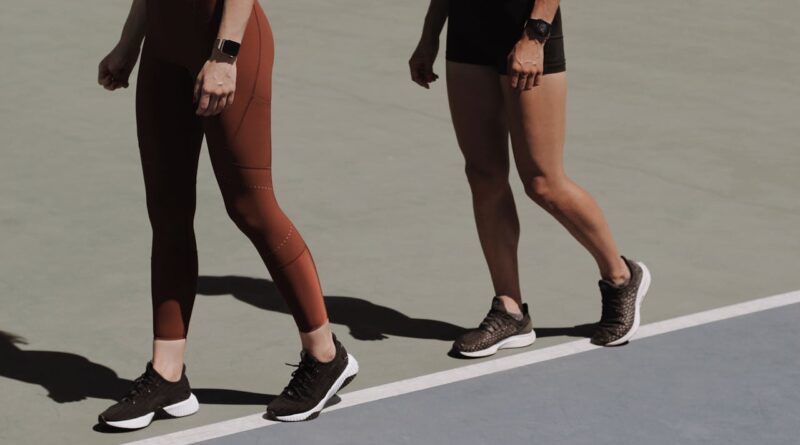The Best Energy Foods to Fuel Your Long Walks
Why Fueling for Your Walk is Important
Going on long walks or hikes requires more than just a comfortable pair of shoes and a sense of adventure. You must eat well to give your body the energy it needs to complete such journeys. When you are walking, calories from food get burned off by your body, thus reducing glycogen stores in your muscles, which can result in fatigue, muscle cramps, and decreased performance if not refueled.
When you walk, balancing blood sugar levels during, before, and after walking can be done through eating right. This also helps in attaining sustained energy throughout these stages as well as assists muscles in their recovery process. When a nutrient-dense yet energizing diet is incorporated into one’s lifestyle, they will be able to achieve maximum performance in walking without hitting ‘the wall’.
Maintaining a walk’s physical demands can be difficult without enough fuel. The fact that you have low energy levels can cause reduced endurance, a slow pace, and an increased risk of injury during a walk. On the other hand, ensuring proper fueling may help maintain a steady level of energy throughout, thus improving overall performance and avoiding effects like bonks or hitting the wall during walks.
The 10 Essential Power Foods to Fuel Your Walks
- Oats: Complex carbohydrates provide slow-release energy that keeps you going strong; therefore, they are an excellent choice for breakfast or a snack before walking because they offer prolonged active hours without getting hungry.
Bananas have a high potassium content, which prevents muscle cramps, and natural sugars instantaneously provide an energy boost when the need arises. For a walk, they serve as a great portable option that is also easily digested.
Nut butters: They are rich in healthy fats and protein, which provide long-lasting energy and help muscles recover. Nut butters can be used with crackers made from whole grains, smoothies, or even eaten alone.
Greek yogurt: is a nutritious snack rich in proteins that helps to repair body tissues as well as build muscles. Because it contains proteins, this post-walk food is ideal due to the presence of proteins in it.
Sweet potatoes: are complex carbohydrates that contain fiber and vitamins that the body needs over time for energy supply. Having roasted sweet potato wedges or mashed sweet potatoes makes an ideal nutritious pre-walk meal.
Quinoa: is a gluten-free grain that’s high in complex carbs, fiber, and protein for slow-burning energy during exercise. Quinoa can be included in bowls, salads, or served as a side dish.
Berries: high antioxidant content plus natural sugars cause fast energy rise within your system. Consider having fresh or frozen berries along with other foods like oatmeal, smoothies, etc.
Salmon: is a lean protein filled with omega-3 fatty acids, which aid muscle regeneration while reducing swelling. The best salmon will be one that is grilled or baked, since it serves both nutritional and culinary purposes after a walking session.
Eggs: Complete proteins necessary for repairing worn-out muscles into new ones again are found in eggs; hard-boiled eggs can make delicious snacks too, among many others, including omelets, scrambled eggs, etc.
Spinach, kale, or other leafy greens that are dark in color help boost your overall health and energy levels because they contain vitamins, minerals, and antioxidants. For a change of taste, you can add them to salads, smoothies, or sautéed dishes.
Top Tips for Stepping Your Way to Success
You should try different foods and find out what tastes best for your body. Just because a certain food may be beneficial for one person doesn’t mean it will work well for another.
Your diet should include a mix of complex carbohydrates, lean proteins, healthy fats, and lots of fruits and vegetables. This way, you get an array of nutrients to meet your energy needs as well as other recovery requirements.
To keep yourself hydrated, take in water before, during, and after walking. Muscle cramps, fatigue, and decreased performance result from dehydration; therefore, you must sip water while walking.
Planning snacks or meals ahead of time helps you avoid going hungry on your walk. This can help prevent making poor food choices or running out of fuel during the walk.
Fuel accordingly based on how long you plan to stay outside and the intensity at which you are doing it: If some walks require more or varied kinds of fuel than others, then simply stay open-minded about changing this approach.
Conclusion
When going on those long strolls or hikes with friends, it is important that your body gets fueled with appropriate foods. Incorporating nutrient-rich, high-energy foods into your diet can increase walking performance levels while decreasing the chances of hitting the wall and making every minute spent outside amazing. Remember to experiment with different foods, stay hydrated, and listen to your body to find the perfect fueling strategy. Enjoy your walk!
